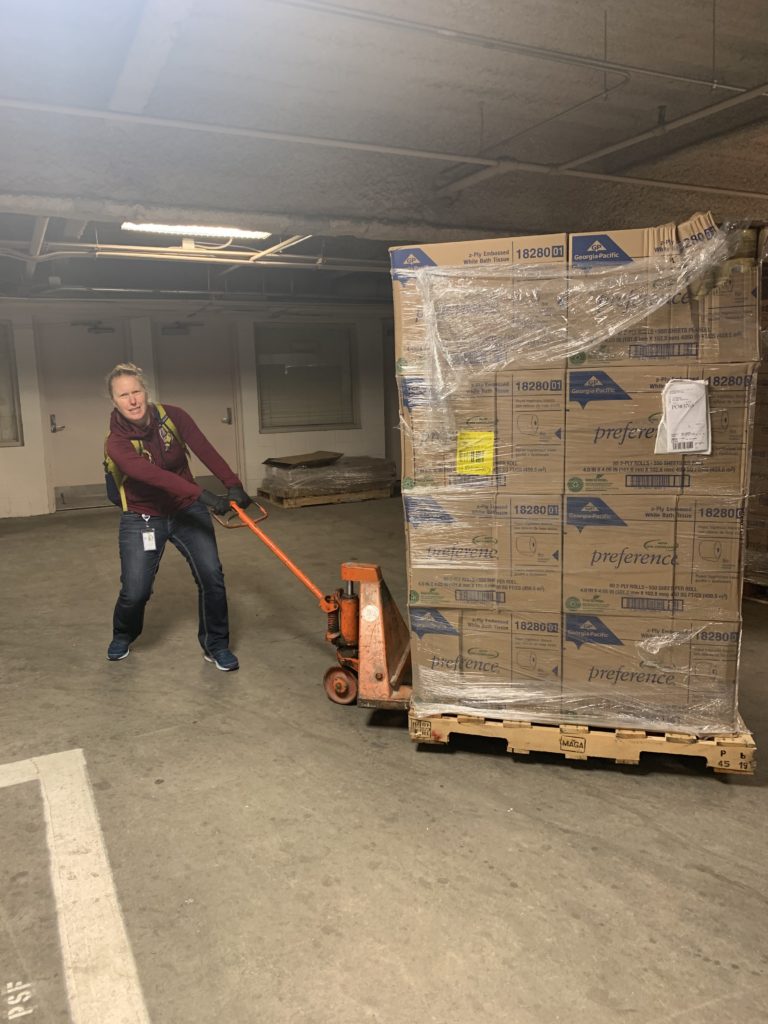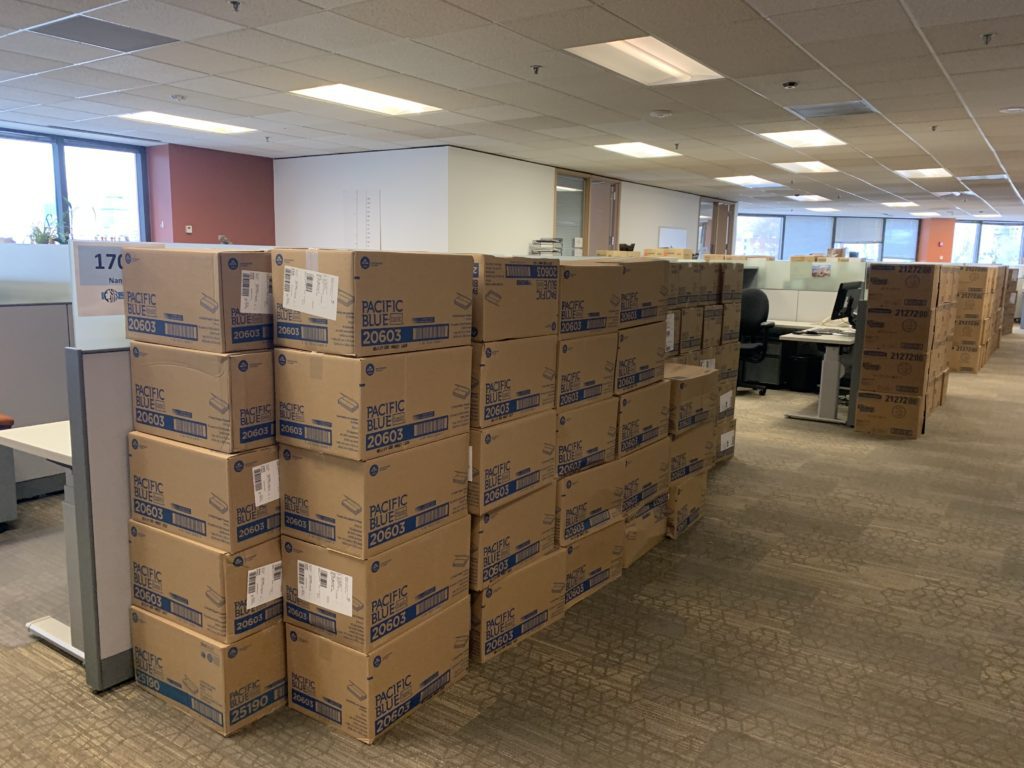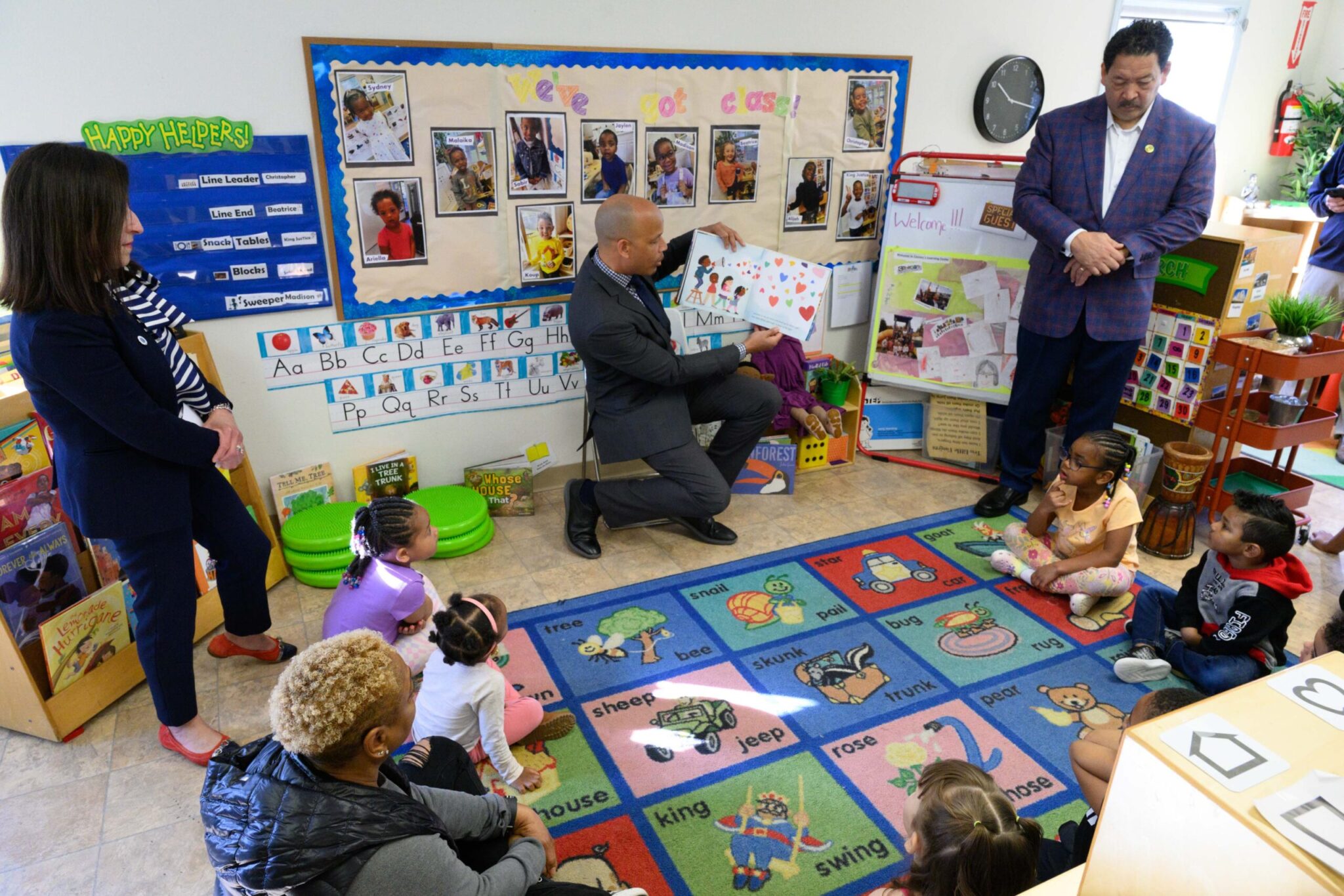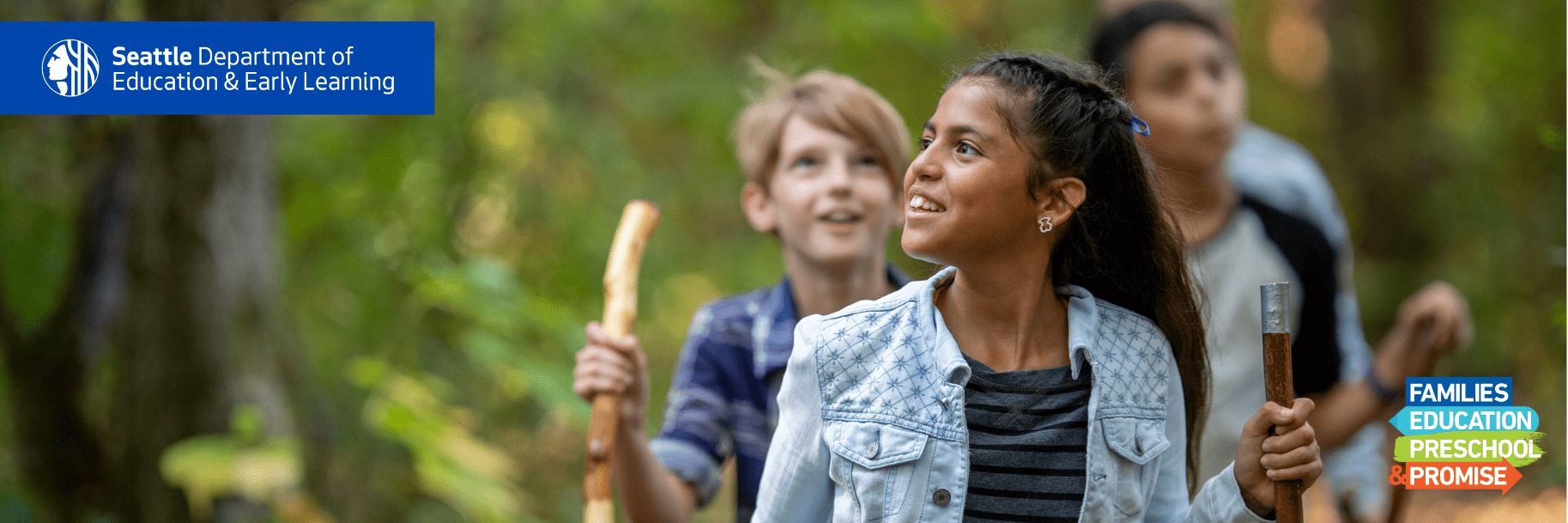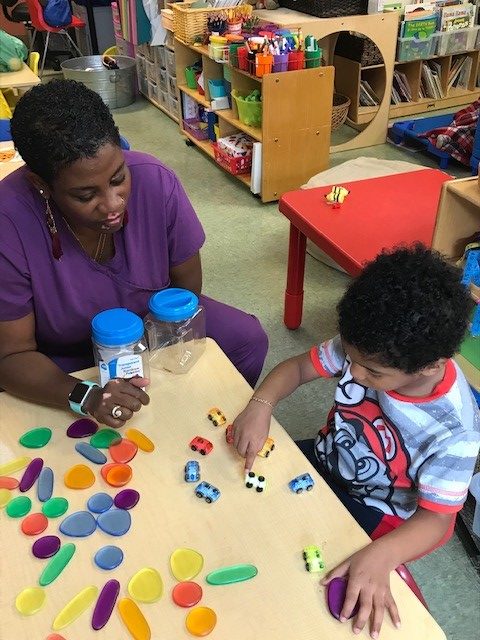
As summer started in Seattle, the city made several transitions marking a new season. These included COVID-adapted high school and college graduation ceremonies, as well as King County’s transition to Phase 2 of Governor Inslee’s Safe Start recovery plan.
On June 30, another transition happened. The emergency order establishing the City of Seattle’s Emergency Child Care (ECC) program for essential workers expired and families transitioned from ECC to summer care options.
The ECC program, developed in only a few weeks’ time during COVID’s early days, was officially launched on March 27 with an emergency order from Mayor Durkan. The program was funded using repurposed Families, Education, Preschool, and Promise (FEPP) levy dollars with support from the Levy Oversight Committee and approved by City Council. Through ECC, Seattle Preschool Program providers served essential workers in need of child care after schools closed in late March.

Successes of the ECC Program
ECC benefited families and early learning providers alike. For providers, many of whom are women- and minority-owned businesses (WMBEs), participation in ECC allowed them to stay open, albeit under far different operational circumstances. These child care providers showed tremendous flexibility and resilience, and in a short time, they successfully revamped established programs to serve smaller class sizes, allow for social distancing and enhanced sanitation, and in some cases adapt classrooms for school-age children.
For families, several parents shared that ECC was “one less thing” they had to worry about, and for some, the only way they were able to stay employed. Access to free child care was critical to their ability to work during school closures, and the city’s overall response to COVID-19 was no doubt aided by keeping these workers—nurses, grocery store workers, paramedics—on the job.
Overall, the ECC program supported 193 families and 259 children with at least one parent working in an essential job, which at the beginning of the program was defined as first responders and workers in healthcare, pharmacy, and grocery. Later, the definition was expanded to include other essential workers and industries identified by the governor. The majority of parents worked in health care (58%), child care (8%), grocery (6%), and food service (5%). ECC was delivered by 11 providers across 22 program sites.
The success of Emergency Child Care in Seattle isn’t only in how many children and families the program was able to serve. Many families served by ECC reported that they found a long-term “home” with their ECC provider for their children to attend ongoing summer care or preschool in the coming school year. This kind of continuity of care provides peace of mind for families, better social-emotional support for children, and is a big boost to kindergarten readiness in young children.
DEEL Staff Supporting ECC
DEEL’s team of human service coordinators, part of the department’s Early Learning staff, was key in helping address families’ needs during the chaos and uncertainty early in the pandemic. Many essential workers received an invitation to the program directly from their employers, and DEEL’s intake team worked to make sure each family was enrolled with a suitable provider for their needs.
DEEL staff also supported ECC providers by providing masks, gloves, no-touch thermometers, and cleaning and sanitation supplies for ECC sites. Overall, DEEL made emergency supply deliveries for 125 classrooms during COVID, which included ECC classrooms as well as CCAP and ECEAP classrooms. DEEL also made sure providers stayed up to date on safety measures and changes to public health guidelines, and the department’s early learning coaches were there to provide implementation support when requested.
To transition to summer, DEEL staff assisted families in securing summer care in partnership with Child Care Resources and Seattle Parks and Recreation. Many income-eligible ECC families were enrolled with help from DEEL in the City’s Child Care Assistance Program (CCAP).
.
Looking Ahead
As the City looks ahead to fall, we know much uncertainty remains around school, remote learning, and a COVID-19 resurgence. DEEL staff is working diligently to plan for the possibility that an Emergency Child Care program may be needed again in the future, as well as how to sustain a child care industry that has been hit hard by COVID-19.
“Child care is an integral component of a successful reopening plan,” said DEEL’s Early Learning Director, Monica Liang-Aguirre, “and DEEL is committed to supporting our providers throughout this rapidly changing landscape. We’re confident that, as a community, we will continue to adapt to meet the needs of Seattle’s children and families during these unprecedented times.”

ECC Provider Spotlight: Erica Linear, Seed of Life
Erica Linear, CEO and Director of Seed of Life Child Care Center, rises early each morning to make sure her staff and preschoolers are off to a great start. In February, it was business as usual at the three Seed of Life locations in Hillman City, Columbia City, and Rainier Beach. But unbeknownst to Erica, the first cases of COVID-19 were emerging in Washington state, and her “normal,” like everyone’s, was about to change.
Erica has a 20-year relationship with the City of Seattle’s child development programs. As a Seattle Preschool Program (SPP) partner and provider, the Seed of Life Child Care Center provides evidence-based, high-quality, culturally responsive preschool services that improve kindergarten readiness.
“We serve families and children from all spectrums, and we teach early learners and school-age children multiculturalism and respect for differences, which is foundational to early childhood development,” said Erica.
Change came quickly for Erica during the first weeks of the pandemic. One week, Erica and her team had to close all three childcare centers. Then the next, they had to prepare and implement new standards given by the Department of Health in order to reopen. This chaotic pace of life was to become her new normal.
Laundry became a monumental task for Erica, as each day she brought home scrubs her team had worn so she could sanitize and return them to work the next morning. Buying supplies became a struggle, as resources such as paper towels, hand sanitizer, cleaning wipes and gloves became difficult to find. On a personal level, Erica had an extra burden of responsibility, caring and taking precautions for her mother, who had a recent cancer diagnosis.
There was a moment in the early days adapting to COVID-19 when Erica accepted that it is okay to not have all the answers, realizing that no one does. As an Emergency Child Care provider, she understood the need to support first responders and essential workers was primary. As a woman of color, she also knew the pain that families left without child care in her community were feeling.
Many parents in her community spoke of lost jobs and were struggling to afford basic life essentials like food, rent, cell phones, utilities and the internet. Erica refused to leave them behind. “The distribution of information and resources to communities of color is inequitable,” says Erica, “and so I have been passing on materials that connect families to resources.”
“We don’t know what’s coming in a few months, or what our new normal will be,” said Erica. We don’t know what school is going to look like, or what child care will be. All we know is that we have to keep helping our kids.”
Thanks to providers such as Erica and Seed of Life, the City of Seattle and its community partners stand ready to work together to meet the needs of Seattle families and children.
Thank you to our Emergency Child Care providers!
Associated Recreation Council
Children’s Home Society
Creative Kids
Denise Louie Education Center
Experimental Education Unit at UW
Launch
Primm ABC Child Care Center
Seed of Life
Tiny Tots
United Indians of All Tribes Foundation
YMCA
